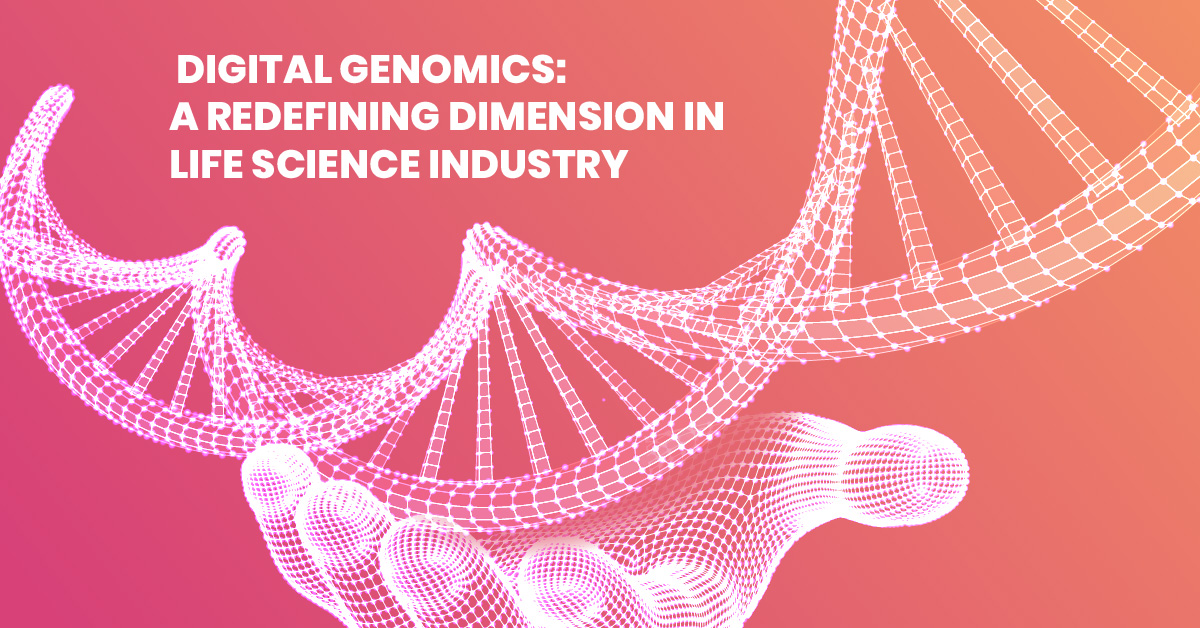



13, May 2021

Next-generation sequencing technologies, DNA and RNA have significantly transformed operations in the life science segment. For instance, digital genomics has sparked a revolution in research and systems biology to accelerate insight into complex genetic systems. In fact, the digital genome supports instant access to trait combinations to solve endless custom inquiries.
As per twin studies, genes are major contributors to chronic diseases, including diabetes, obesity, and cardiovascular conditions. According to WHO, chronic conditions pose a significant challenge globally, accounting for around 60% of all deaths. Hence, estimates suggest that genomic data from approximately 60 million patients will be generated over the upcoming years, playing a key role in developing treatments.
Triton Market Research has determined in its report that the global digital genome market is estimated to prosper with a CAGR of 9.57% between 2021 and 2028.
Genome sequencing is rapidly transitioning into clinical practices in today’s world, with its implementation primarily supported by government investments. Such initiatives by government bodies help bring transformative change under real-life conditions. For example, the United Kingdom has developed the largest genome database through the 100,000 Genomes Project. This government project is sequencing whole genomes from National Health Service patients, concentrating primarily on rare conditions, types of cancer, and infectious diseases.
Considering the proliferating number of severe disorders in emerging economics, MedGenome, has claimed to have built the largest database of South Asian genetic variants present in genetic diagnostics in India. Further, to investigate the causes and cures for rare diseases, the NIH, a federal agency in the US, is engaged in conducting clinical medical research in the field of genomics.
In January 2020, the first genome sequence of the COVID-19 virus was publicly communicated, which resulted in the sequencing of thousands of samples. As genomic is considered to be among the most promising research areas, several research organizations initiated digital genomic sequences to treat the virus. For instance, the Cog UK research consortium sequenced over 16,000 viral samples derived from COVID positive patients.
What’s more, the European Commission and the European Bioinformatics Institute launched the COVID-19 Data portal, which focused on bringing relevant datasets for sharing and analyzing to accelerate coronavirus research.
The genetic makeup and its variations report the risk of disease, improving medication selections. Here, the use of digital solutions like machine learning can assist in identifying drug targets, resulting in a faster and efficient drug discovery and development process. For example, companies such as Deep Genomics have adopted machine learning wherein algorithms are specifically designed based on patterns identified in large genetic data sets.
Given the current inadequacies in identifying chronic conditions, artificial intelligence and machine learning are widely used to overcome several issues faced by genomics. For instance, Sapientia primarily integrates algorithms to market and prioritize variants to aid in diagnosing rare disorders. In addition, the Chinese government initiated a 15-year effort to transform the country into a global leader in channeling AI technologies to interpret genetic data.
With the influential combination of rapidly evolving biotechnology and data science, quantitative genome sequencing has an optimistic future over the next decade. One of the factors supporting this robust growth will be the rising partnerships and collaborative research activities undertaken by companies. To cite, recently, Oxford Nanopore and NVIDIA collaborated to partner the DGX AI compute system with an ultra-high quantity sequencer. Such collaborations will help address fundamental questions relating to the structure of genomes, forming a base for researchers to expand the development of precision medicine.

Prevalent cases of terrorist attacks in today’s world is increasing the need for severe standards of security for public safety, and the global market for biometric technology scrupulously accommoda..
Prevalent cases of terrorist attacks in today’s world is increasing the need for..